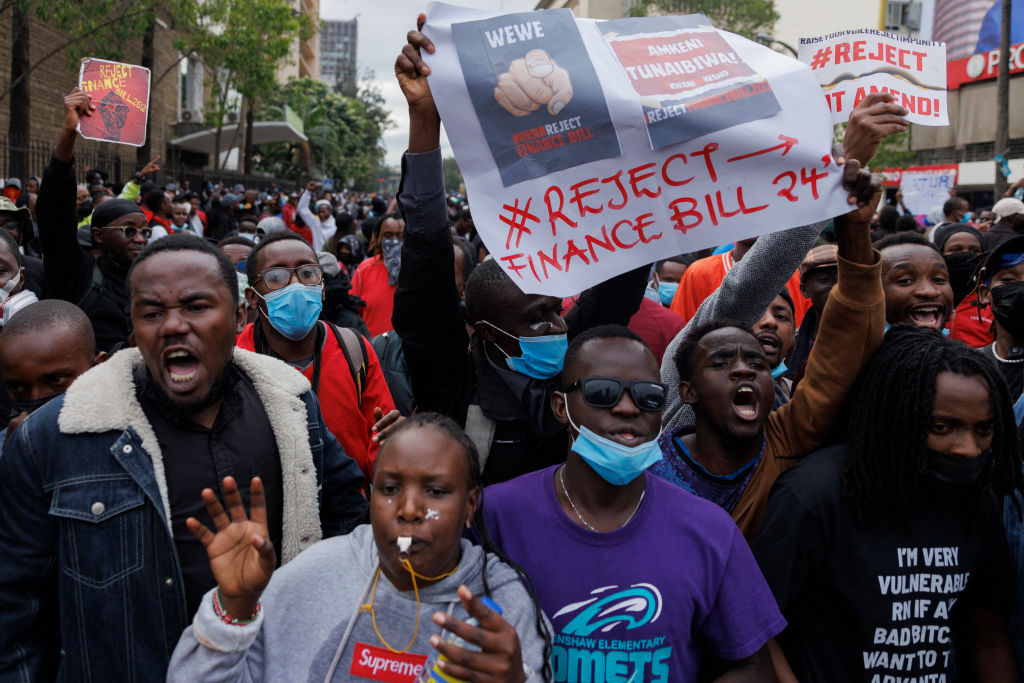- Thursday, April 17, 2025
The demonstrations are driven by opposition to tax hikes in a country grappling with a severe cost-of-living crisis. Many have also been seeking resignation of president William Ruto.

By: Shubham Ghosh
AT LEAST 10 people lost their lives while numerous others were injured in gunfire in Nairobi, the capital of Kenya, on Tuesday (25) as protests over tax became intense. Hundreds of demonstrators opposing a bill aimed at increasing several taxes clashed with the law-keepers.
In the midst of the unrest, parts of Kenya’s parliament went up in flames as protesters managed to overrun police and enter the compound, according to a Reuters witness.
Earlier in the day, the country’s parliament passed a controversial finance bill designed to generate an extra $2.7 billion in taxes. The move is part of a broader strategy to alleviate Kenya’s substantial debt burden, where interest payments alone account for 37 per cent of annual revenue.
Read: Indian businessman brutally killed in Kenya; 4 held for kidnap, murder
The parliament approved the measures and was subsequently adjourned amidst protests that surrounded the building.
Witnesses reported clashes between protesters and police in the streets of Nairobi and other cities of Kenya, where law enforcement used tear gas, water cannons, and fired shots over demonstrators’ heads to scatter them.
Read: India to give Kenya $250m for agri sector upgrading
The protesters retaliated by throwing stones at security forces.
The demonstrations are driven by opposition to tax hikes in a country grappling with a severe cost-of-living crisis. Many protesters are also demanding the resignation of president William Ruto.
Ruto won an election nearly two years ago by promising to advocate for Kenya’s working poor.
However, he now faces a difficult balancing act between satisfying lenders such as the International Monetary Fund, which is pushing the government for deficit reductions to access additional funding, and addressing the pressing needs of a financially strained population.
Kenyans have been struggling to come to terms with several economic shocks caused by the lingering impact of the COVID-19 pandemic, the ongoing war in Ukraine, two consecutive years of droughts and depreciation of the country’s currency.
(With Reuters inputs)